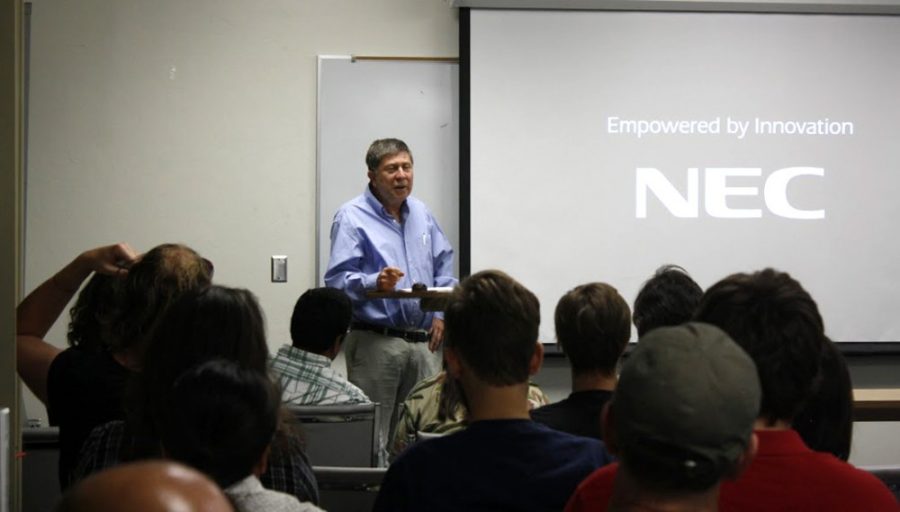A panel discussion was held last night regarding the movement for Boycott, Divestment and Sanctions against the state of Israel and its violations of human rights. Discussions consisted of the history of Israel, U.S. funding and the history of the BDS movement.
The people in the panel that were speaking at this event come from a wide range of backgrounds and studies. The panel consisted of Matthew Abraham, a professor in the English department; David Gibbs, a history and government professor; Miranda Joseph and Sandra Soto, professors in the gender and women’s studies department; Alex Karaman and Brooke Lober, graduate students in gender and women’s studies; Ariel Tinney, a political science graduate student; and Alisha Vasquez, a UA alumna who is now an instructor in the Border Studies program at Earlham College. They all related their diverse talks back to the central theory of BDS.
Boycott, Divestment and Sanctions refers to a set of tactics including individual and institutional boycott and divestment from companies that profit from Israel’s military and occupational activities. This is intended to isolate Israel and negatively impact its economy.
“The practicality of BDS is very different depending on your location,” Karaman said. “So let’s say if you live and work in the United States and shop in the United States, the need to buy Israeli products is lessened because the availability of products from other companies is large. In Israel and in Palestine alike, the omnipresence of Israeli products — for example, in stores — is so much that sometimes it might be impossible to avoid purchasing those products.”
This means that BDS has to take place outside of Israel and Palestine. It’s a way for concerned citizens living elsewhere in the world to express their solidarity with Palestinians, given that the call for BDS came directly from Palestinian civil society in 2005.
“A lot of Palestinians work for Israeli companies, so for them to engage in the boycott in every sort of way possible would mean the potential loss of their income [and] the instability for their families,” Karaman said. “BDS takes place very differently in Israel and Palestine, than it does in the [U.S.]”
Although the panel was discussing BDS with a focus on putting pressure on Israel, the subject of BDS has a very strong tie to the corporations in America, specifically corporations along the U.S.-Mexican border. This means that what is going on in Tucson has an effect in Israel, and many of the same companies being targeted by BDS activists are also targeted by immigration activists in the borderlands.
“If you follow the money trail, you can follow it up to the same corporations,” Vasquez said. “And when you follow the money after it’s made in the corporation, it generally goes to politicians. This is a phenomenon known as the military industrial complex.”
This is a very big situation that also affects the UA.
“In the [U.S.] there have been 24 really major campaigns where students actually focus on the investments of their university,” Lober explained.
The campus-based move for divestment may be coming to the UA next.
For example, the UA has major research and financial ties with Raytheon Missile Systems, one of the targets of the BDS campaign. Raytheon does testing at the UA Science and Technology Park, meaning that everyone who pays money to the school indirectly allows for new missiles to be developed. These new missiles will then be used against people throughout the world — including Palestine.
“If the [UA] Tech Parks are representing me, I want to have a say to make sure they know that I am not okay that bombs are killing innocent people,” Vasquez said.
Vasquez is not the only person worried about the production of missiles.
“As a Palestinian and an American and a student and a grad worker here at the [UA], it’s really troublesome that actually, without my say-so, a bit of the money that I spend at the university every year is actually going to produce weapons that have killed my family,” Karaman said.
_______________
Follow Louis Vitiritti on Twitter.








